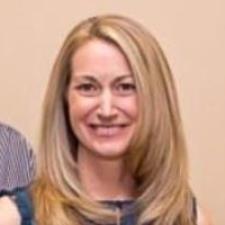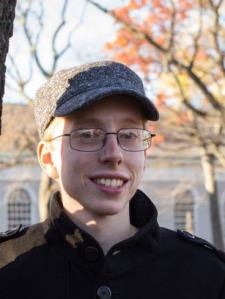 Post Classifieds
Post Classifieds
Open Education: The Future of Education
Open Education: The Future of Education
Nick Pulliam
For The Clock
ntpulliam@plymouth.edu
One thing we can all agree on is that college is expensive. We pay thousands every year in tuition, and hundreds for textbooks that we may hardly use.
This is not something that professors are not worried about. “Once I started realized that textbooks were a social justice issue that was really precluding people from having an open access education, I started to care more than I used to,” said Robin De Rosa, Chair of the Interdisciplinary Studies Department and a leader in the Open Education Movement in the United States.
Over the past ten years, educators across the country have actually been working together to find a solution to this issue. They have done this with Open Education Resources (OER). Essentially, OER is a movement of individuals who are trying to change the way we learn and how we pay for access to the information that we need. It all started about ten years ago when copyright laws made it difficult to legally share work.
This was an issue, because many teachers actually wanted their work to be open to the public. Christin Wixson, a faculty member in Lamson Library who is involved with the Open Education Movement, explained that the solution was found in Creative Commons Licenses (CCL). These licenses allow people to post their work online and let others use it, to a certain degree. In OER lingo, there are five R’s to sharing: retain, reuse, revise, remix, and redistribute. It allows other people, typically educators, to take something that someone has posted through CCL and repurpose it to suit their classes needs. They can also redistribute their altered version online. Creative Commons Licenses are what allow Open Education Resources to work, the two go hand in hand.
The fact that it makes textbooks free, or at least much cheaper than they usually are, is not the main benefit of OER. Since people across the country can work together on the same subject, there is a constant update to knowledge that makes the information students read each year relevant to the age we live in. “We want to produce students who are more flexible, who understand how to use the technologies that are available and who can change with a changing culture,” Dr. DeRosa said. It is not just about saving money, it is about changing the way students learn and prepare them for a world that is in a constant state of change.
This movement is still young, so many professors are only just beginning to incorporate OER fully into their classrooms. One professor here on campus, Dr. Catherine LeBlanc (Communication and Media Studies), actually spent the summer working with other faculty to create an OER textbook for the First Year Seminar course that new students have to go through. It is not her first experience with the movement, as she also tried to incorporate some of its values into her Game Design Class by having students choose what they want to do when creating their games. She sees the potential in the movement to co-create knowledge with her students.
It is not uncommon for students to feel like their work does not matter. “What I’m learning in both my Intro to Media and Communication classes, I feel like it effects the world, but I don’t feel like I’m making any impact at all” said Lindsay Brenner, First Year Student in Communication and Media Studies. “We all create something for a class, show it to a professor, and at the end of the year it disappears forever.”
Catherine LeBlanc feels that with the Open Education method of teaching, which supports students actively participating in the creation of knowledge, that “students will have a better understanding of why they’re doing what they’re doing, and not just because someone told them to. They’re developing skills as self-directed learners, learners who are curious about the topic and have skills that allow them to go out and find information.”
It may be open but not without its flaws. Since anyone can participate in open education, there is going to be some really good information, and some bad too. There are many critics of this movement including textbook companies who stand to lose a lot of money every time a professor stops using one of their textbooks.
DeRosa said that one of the biggest barriers some professors are facing with Open Education is the difficulty they can have with technology. Since Open Education has such a strong internet presence, it can be difficult for professors to find reliable information.
Thankfully, there is a solution for that on campus. Wixson has been working on an online database for Open Education Resources. She also works with anyone who needs help with the topic.
Finally, there is the last issue that all of this started with, which just so happens to be money. While there may be a lot of free information now thanks to Open Ed, a lot of it is online and unfortunately for some students, internet access is not something that is always accessible. This can make it impossible in some situations for students to use the sources the rest of the class is using.
These challenges are something that this movement will just have to face. It is still in its early stages and as it gains more and more traction solutions will be found.
So how is this movement growing on campus? Well, as stated before there is now a database at the library that can be used by students and faculty to find OER sources. DeRosa is spreading the word to other campuses which can have a direct effect on this one, since one of the main ideas of Open Education is communities sharing information with one another. LeBlanc is most excited for the open pedagogy. She also hopes to have students write an entire chapter for the textbook she has created on distinguishing between real and fake news. What is most important to her though, is getting students to choose what they want to work on.

Get Top Stories Delivered Weekly
More theclockonline News Articles
- Campton Elementary School 8th Grade Silent Auction & Spaghetti Dinner
- Student Spotlight: Sabrina Siegel
- Ghost Hunt With PSU Paranormal Research Club
- Steve Irwin: How He Brought Us Together
Recent theclockonline News Articles
Discuss This Article
MOST POPULAR THECLOCKONLINE

Campton Elementary School 8th Grade Silent Auction & Spaghetti Dinner By Rebecca Tgibedes

Will You? By Isabelle Elsasser

Summer in the Sunflowers By Emily Holleran

Student Spotlight: Sabrina Siegel By Justine Walsh
GET TOP STORIES DELIVERED WEEKLY
FOLLOW OUR NEWSPAPER
LATEST THECLOCKONLINE NEWS
RECENT THECLOCKONLINE CLASSIFIEDS
OUTSIDE THE LINES
- A New School Year, A More Relevant SAT
- Prepare Your Place for the Next Pandemic
- Adult Braces Increasingly Trendy
- Back to School Means Recommended Vaccines for Preteens Too
- Simple Ways to Add a Touch of Luxury to Your Home
- Discover a Minimally Invasive Procedure Transforming the...
- Hints to Help You Discover Great Deals
- New Book By Gary Vaynerchuk Teaches Kids The Importance...
- Tips for Homeowners to Make Summer Home Projects More...
- When Planning International Travel, Measles Vaccination...
FROM AROUND THE WEB
- Outsmart the Outages: Expert Advice on Power Loss...
- Savor Smart Snacking with Kiwifruit
- Boost Your Brand Messaging to 100+ million Americans
- #Drive for Hope with Marine Toys for Tots and Richard...
- Tips for Having Meaningful Conversations with Your Kids
- How Psoriasis Stigma Impacts Health
- Satellite Internet Helps Small Businesses Stay Connected...
- Shop.able Carriers Offer Easy-to-Recycle Option for...
- Creating an American Techno-Industrial Strategy
- Prepare Now to Protect Yourself During Respiratory...
COLLEGE PRESS RELEASES
- Free Legal Protection Helpline for College Students Received Requests Concerning 650+ Antisemitic Incidents on Campus
- Agenda Hero Eliminates Tedious Calendar Work with New AI Tool and Directory for Students, Faculty, and Parents
- Philip Phillips Named President-Elect of The Honor Society of Phi Kappa Phi
- Lora Becker to Serve as Past President of The Honor Society of Phi Kappa Phi
- Sharonda Rush to Serve as President of The Honor Society of Phi Kappa Phi








